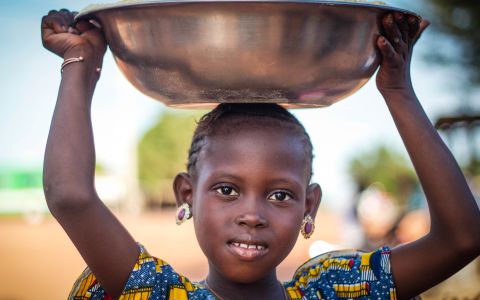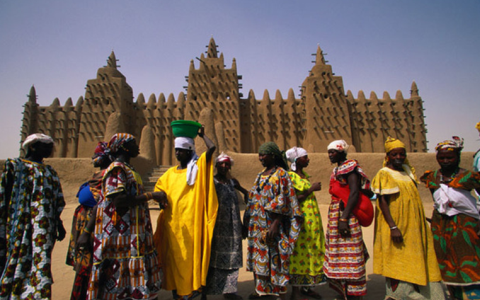FGM - why do Malian women still think it's a religious requirement?
by - 1st October 2014

MORE needs to be done to separate the practice of female genital mutilation (FGM) from the belief that it is a religious requirement if it is to be ended in countries like Mali, a new report has said.
Around 91 per cent of women and girls in Mali have undergone the practice – also known as ‘cutting’, the study produced by 28toomany this week revealed.
The research showed that FGM in the country is becoming an increasing problem rather than reducing, with the rate having gone up from 85.2 per cent in 2006.
Pressure
The figures were taken from a 2006 study by the Pan African Christian Women Alliance and also revealed that numbers are going up as pressure on girls to undergo the practice is increasing from a younger age.
Some 73 per cent of the girls and women with FGM in Mali are cut under the age of five.
Although FGM is not a religious requirement and predates both Christianity and Islam, the perception among many Malians is that their faith requires it.
Figures showed that 65 per cent of Christians practise FGM and 77 per cent of animists, as do 91 per cent of non-religious Malians.
More than 90 per cent of the population are Muslim and over 60 per cent of them believe FGM is a religious requirement. Lapido Media has previously reported on the call for FGM to be a religious obligation on 'Islamic grounds'.

Ann-Marie Wilson, 28toomany’s executive director, said: ‘While religion is not the only driver for FGM, it is clearly of importance. A change in the beliefs of the Islamic population would have the biggest impact on the numbers of girls cut because they make up most of the population.’
In all religious groups, women said they believed FGM was required by religion rather than by men. In some communities this was as high as 77 per cent.
But Dr Wilson said: ‘More men than women attend mosques and, historically, sermons were delivered in Arabic, limiting attendees who could understand the sermon’s message which is a challenge for faith leaders speaking out against FGM.
‘In recent years a movement has started in Bamako [the capital of Mali] to deliver sermons in Bambara [language spoken by 80 per cent of Malians], opening up the possibility that women will attend more services and hear imams preach against FGM and deny the religious connections.’
The government in Mali is supportive of anti-FGM initiatives, but as well as the will of the people themselves, the co-operation of faith communities and NGOs is needed if the practice is to be tackled.
The most significant factor however would be to change the mindset of the Malian people, where knowledge of FGM is near universal.
Ostracism
‘FGM is a regular facet of society and individuals believe that even if they wanted to stop, other community members do not want them to stop, and that they would face ostracism if they do not follow custom,’ says Dr Wilson.
A Malian woman quoted in the 2006 Pan African Christian Women Alliance said: ‘Women don’t make any decisions in our village. If you refuse to get your daughters excised, the elderly (heads of family) will dismiss you from the village for breaking with tradition. When I had my daughters, my mother advised me not to have them excised because she is a midwife and aware of the harm.
‘However, I did not follow her advice because I did not want to be the first person to break with the tradition in my family. During the vacation, I took my five girls to Bamako to get them excised by medical staff. When I told my mother her answer was, “One day, you will regret your act” and now this day has arrived.’
Dr Wilson said: ‘In order for the practice to stop groups of communities need to all decide to abandon FGM. Individuals, family or small groups will face huge pressure to conform and carry out FGM. Indeed there are even reports of people displaced by the recent conflict beginning to practice FGM when they fled and moved to live amongst within a practising community.
Taboo
‘Moreover, because FGM is a taboo subject, there is no dialogue to express views on the practice. Individuals are forced by societal custom to continue, even though many community members might want the practice to be abolished. A further complication is that there are varying perceptions of the practice (gender, age, religion, ethnicity) and this makes large-scale intervention very challenging.
‘Given the diversity within Mali, interventions need to be culturally appropriate and locally implemented but national co-ordination to ensure a widespread change of attitude is also needed to ensure changes made within individual communities are sustainable.’
The charity produces detailed reports on each of the 28 countries in Africa where FGM is traditionally practised, focusing on groups of neighbouring countries because they believe that it is most effective to look at the practice as linked to ‘ethnicity and social customs’ rather than ‘national borders’.
